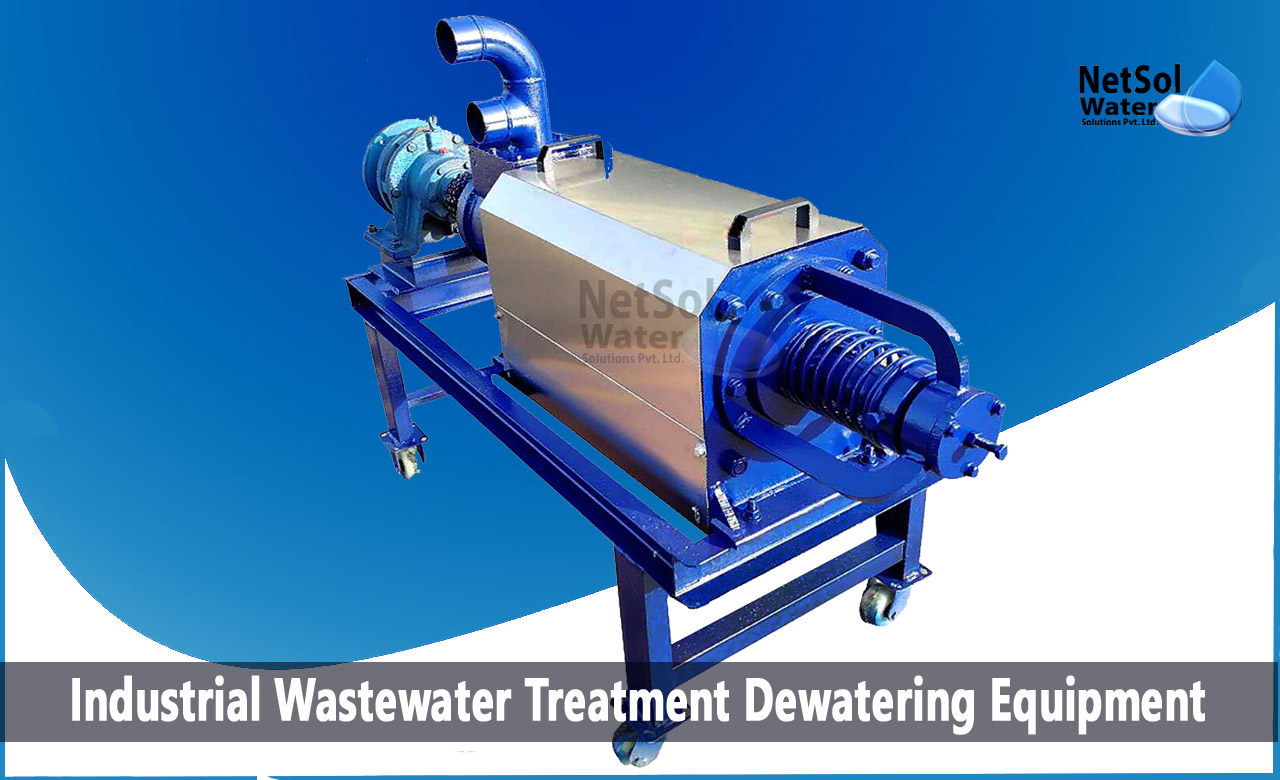Every town with a sewage treatment facility, a power plant, a refinery, or a drinking water facility uses dewatering. Numerous factors will affect your decision on the best approach. Your needs can be ascertained by understanding the various materials and what your project requires. Dewatering is a field in which Netsol Water has extensive experience, and they can develop a strategy that works for you.
As the standards for wastewater treatment are tightened, industrial wastewater treatment equipment becomes more crucial. Pumps are used to feed wastewater slurry into the filter press's chambers. Solids are held while filtrate goes through the filter fabric. As if the cloth had been pre-coated, solids gather on it and create an excellent filter cake. The cake keeps growing as more dewatered solids are pushed into the chamber, eventually filling the entire space. After that, the press is recycled and cleaned.
Types of Industrial Wastewater Treatment Dewatering Equipment
1- Plate and Frame Filter presses
Recessed-chamber filter plates are used in plate and frame filter presses to separate the particles from the liquids. In order to pressurize the slurry and squeeze the filtrate out through the filter cloth lining in the chambers, two plates are joined to create a chamber.
The filter cake is gathered on the filter plate cloths' surface and deposited onto a horizontal conveyor. The filter cake produced by filter presses, which are very efficient, ranges in solid content from 40% to 70% by weight. Another advantage is that it creates the most solid material, which makes transportation and disposal less expensive.
The use of a plate and frame filter press has advantages such as producing stackable, cake-like solids that are less expensive to transport, and not requiring any particular licensing to run the machine.
2- Centrifuge
A centrifuge is a machine that uses rapid rotation to separate materials with various densities. A centrifuge's operation is dependent on buoyancy. In a mixture, a component with a higher density would sink to the bottom, while a component with a lower density would float above it. Usually, centrifuges yield between 25% and 35% of their weight in solids.
3- Belt Press Filter
When high moisture content in the filter cake is acceptable, the belt press is most frequently used. Normally, between 18% and 25% of the output is made up of solids. This operation is continuous, making it efficient for high-volume waste streams when a lot of low-quality filter cake formation is acceptable. The majority of municipal wastewater treatment facilities employ this procedure.
The following uses of the belt press are most advantageous:
· Rust from a paper mill
· Municipal Wastewater Treatment Sludges
Conclusion
The cutting, polishing, and finishing of stone all requires the use of water. It reduces activity-related dust and avoids instrument overheating. The water used in this procedure needs to be treated before it can be used again. The best tools are available to you from Netsol Water, a manufacturer of water treatment and wastewater treatment facilities, to make the procedure simpler. Our solutions are developed and built for every industry that deals with wastewater and silt.
Netsol Water is Greater Noida-based leading water & wastewater treatment plant manufacturer. We are industry's most demanding company based on client review and work quality. We are known as best commercial RO plant manufacturers, industrial RO plant manufacturer, sewage treatment plant manufacturer, Water Softener Plant Manufacturers and effluent treatment plant manufacturers. Apart from this 24x7 customer support is our USP. Call on +91-9650608473, or write us at enquiry@netsolwater.com for any support, inquiry or product-purchase related query.



